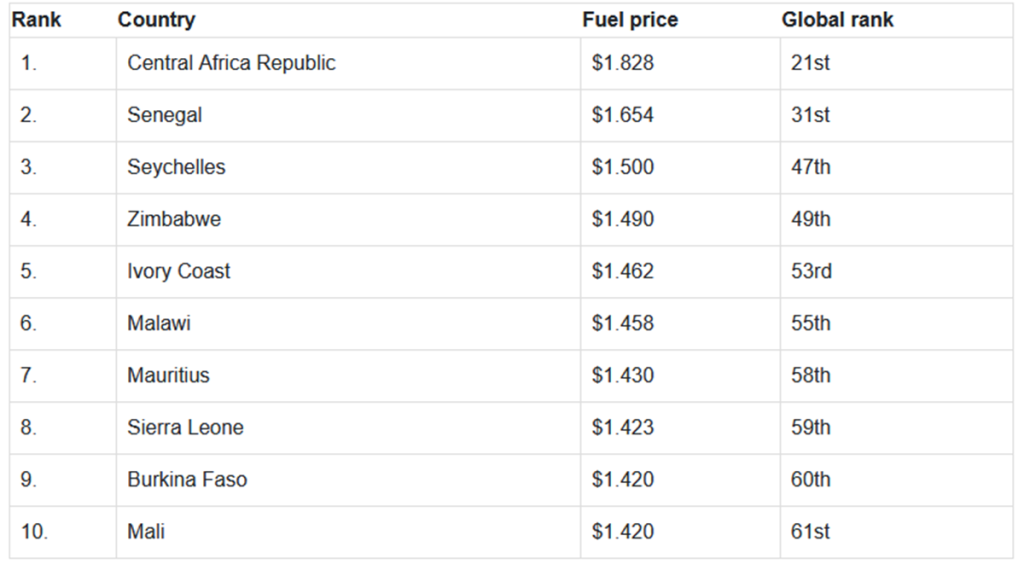Due to their reliance on imported petroleum products, several African countries are extremely susceptible to fluctuations in global oil prices. However, local factors such as inflation and fuel shortages can also impact fuel costs.
The global price of crude oil is a major determinant of fuel costs. African countries face price hikes when importing oil due to OPEC regulations, supply disruptions, geopolitical events, and shifts in global demand.
According to reports from the Organisation of the Petroleum Exporting Countries, the increasing fuel costs are also associated with factors like government-imposed taxes, including those from major oil-consuming countries.
As a result, industries such as transportation must absorb the impact of higher fuel costs, which often trickle down to everyday consumers.
Sectors such as manufacturing, logistics, and agriculture, which rely heavily on transportation, are also at risk of facing higher operational costs as fuel prices rise.
Increased gasoline prices can slow economic growth by limiting investments, consumer spending, and productivity. The current global average fuel price is 1.27 U.S. dollars per litre, compared to 1.29 U.S. dollars per litre last month.
According to the latest report from GlobalPetrolPrices.com on October 14, 2024, here are the top ten African countries with the highest fuel prices in October 2024.



